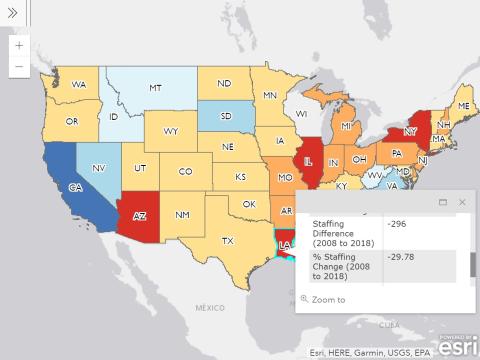The agency is widely criticized as biased by environmental groups within the Parishes. Conflicts of interest have been cited due to the way in which the department generates funds and can expedite permit approvals. In ProPublica articles, the DEQ has been criticized for non-enforcement against polluting industries and doubting EPAs monitoring. https://www.propublica.org/article/in-cancer-alley-toxic-polluters-face-little-oversight-from-environmental-regulators#:~:text=Series%3A%20Polluter's%20Paradise-,In%20%E2%80%9CCancer%20Alley%2C%E2%80%9D%20Toxic%20Polluters%20Face%20Little%20Oversight%20From,the%20chemical%20industry%20it%20regulates..
Most recently, the EPA is pursuing litigation against LDEQ and Louisiana Department of Health alleging that the LDEQ discriminates on the basis of race, violating Title VI of the Civil Rights Act. Complaints filed on behalf of the Sierra Club, Concerned Citizens of St. Johns, Rise St. James, Louisiana Bucket Brigade and others are in regards to the LDEQ air pollution control programs and permitting that subjects residents on the basis of race, and that the failures to protect the health, disproportionately impact the minority communities, subjecting them to adverse health and environmental impacts.
The LDEQ has been critized for favoring industry, economic and business interests over public welfare. The DEQ has been cited as weighing the creation of jobs and land development over the air and communities being polluted.
Conflicts of interests have been noted through the DEQ expidited permit reviewal process that approves the siting of petrochemical facitilies. If companies want to expidite the permitting process they must pay the DEQ employees overtime. Conflicts of interest have been noted in the structural process of permitting approvals in which the companies pay the regulators that approve them.



